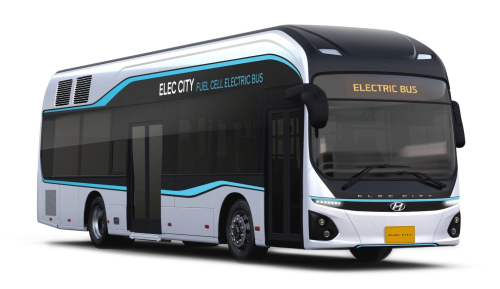Hyundai will support the construction cost of the hydrogen refueling station while providing up to 12 fuel cell electric buses as well as their maintenance and service. Incheon International Airport will provide a site for the station and Hydrogen Energy Network will handle its construction and operation. Air Liquide Korea will provide two high-capacity hydrogen chargers and supply hydrogen gas.

Over the next five years, Hyundai’s hydrogen-powered buses will gradually replace Incheon Airport’s current fleet of internal combustion engine buses that shuttle between the terminals, long-term parking lots and logistics complex. The first batch of seven fuel cell electric buses will go into operation in the second half of this year, followed by three to five buses entering service annually.
The partnership is part of Korea’s Ministry of Environment’s project to install hydrogen refueling stations and subsidize privately financed infrastructure projects.
Hyundai Motor established a dedicated research team for hydrogen fuel cells in 1998 and in 2013 became the first global automaker to produce fuel cell electric vehicles commercially. The company first introduced its fuel cell electric buses for daily operation during the PyeongChang 2018 Olympic Winter Games. Since then, the company has supplied the buses to major cities in Korea—Busan, Changwon, and Ulsan—as well the Korean National Police Agency.
In September 2019, Hyundai and Cummins Inc. entered into a memorandum of understanding (MOU) jointly to evaluate opportunities to develop and commercialize electric and fuel cell powertrains. (Earlier post.)